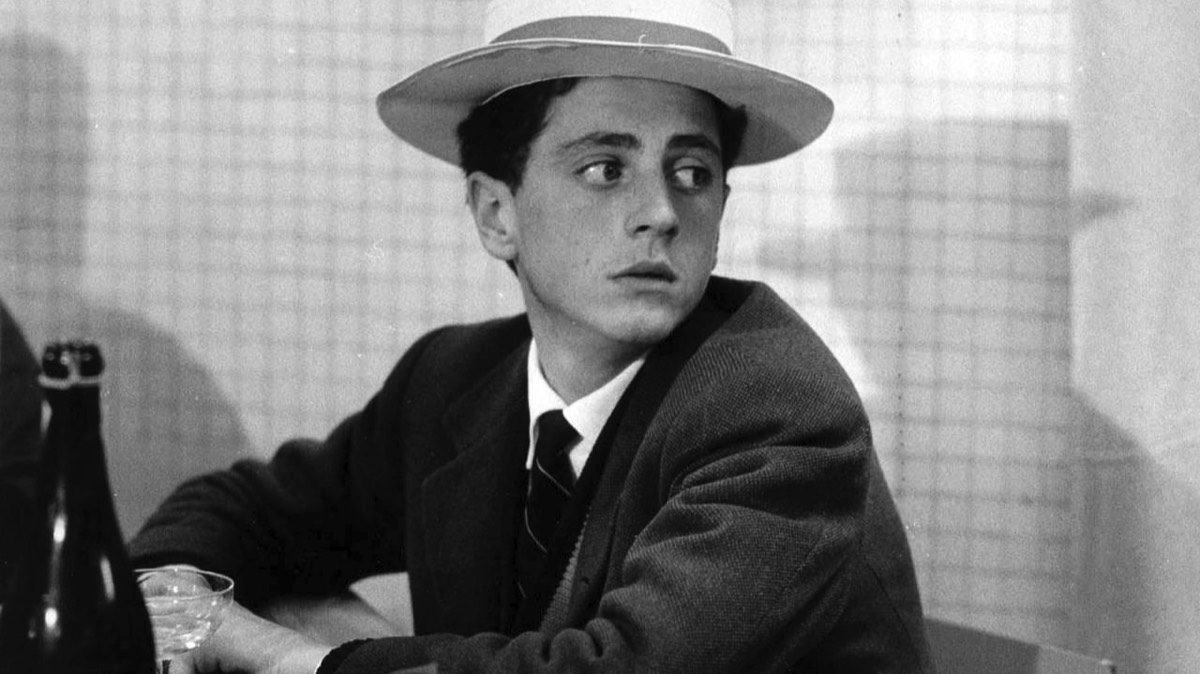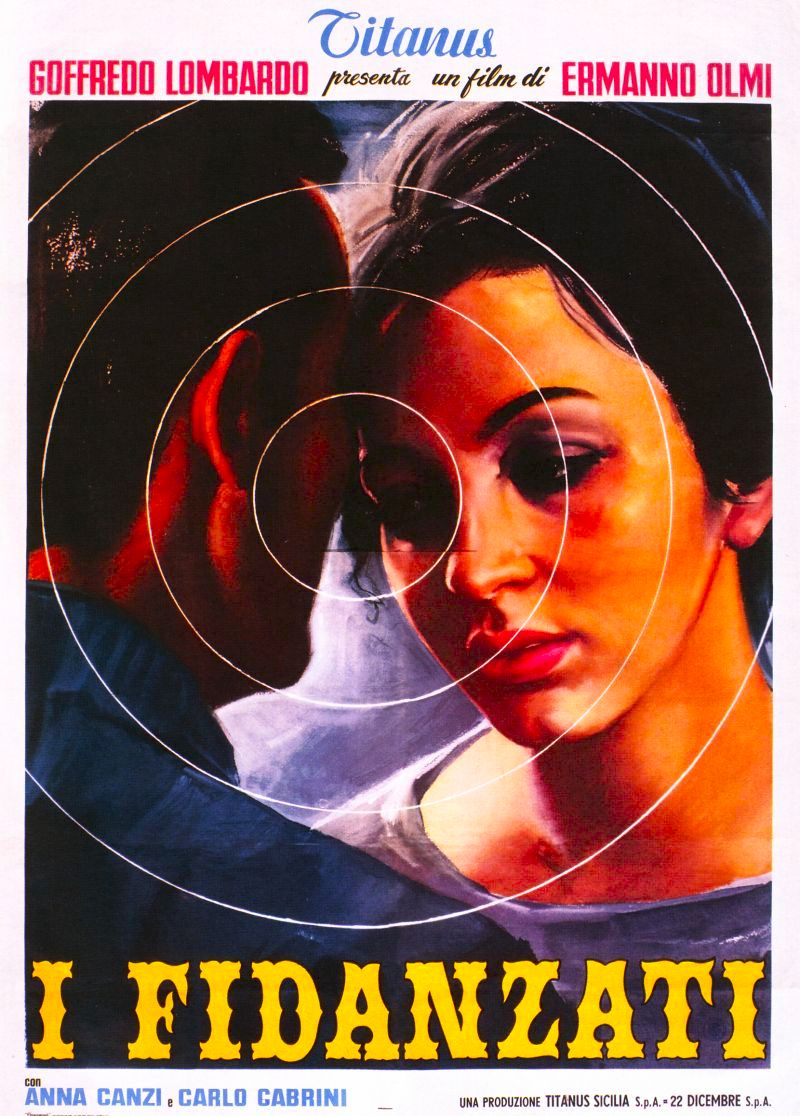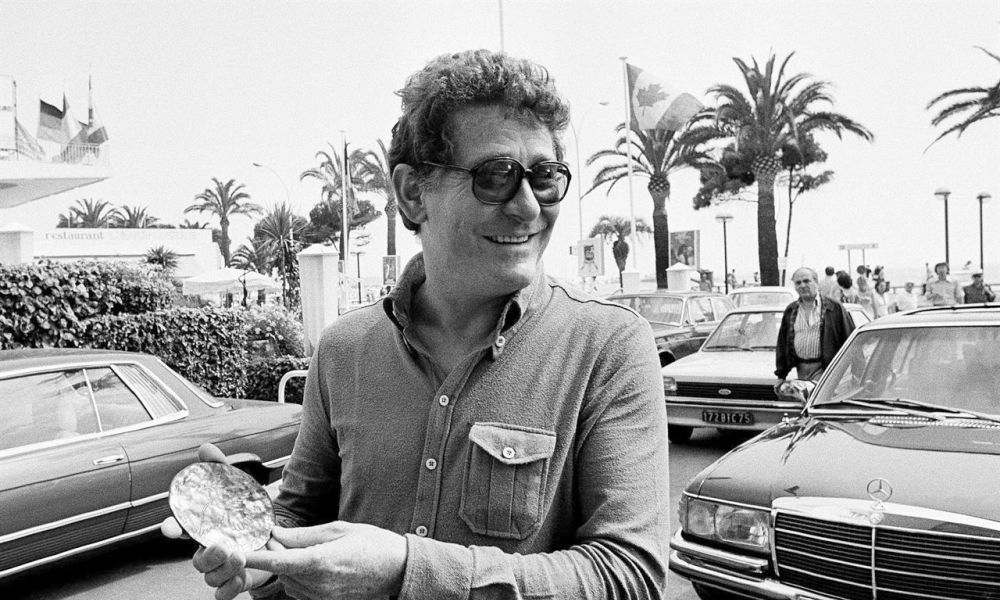"If the first influences on Olmi were neo-realist, he managed to absorb the least melodramatic qualities of this movement. There is no hint of the overt sentimentality, the faint condescension which sometimes mars the neo-realist discovery of the working class, and though Olmi finds plenty of humour in his situations it is never cruel nor at the expense of his characters." - Gavin Millar (Cinema: A Critical Dictionary, 1980)
Ermanno Olmi
Director / Screenwriter / Editor / Cinematographer
(1931-2018) Born July 24, Bergamo, Lombardy, Italy
Top 250 Directors
(1931-2018) Born July 24, Bergamo, Lombardy, Italy
Top 250 Directors
Key Production Countries: Italy, France
Key Genres: Drama, Psychological Drama, Religious Drama, War Drama, Rural Drama, Family Drama
Key Collaborators: Paolo Cottignola (Editor), Luigi Musini (Producer), Fabio Olmi (Cinematographer/Editor), Roberto Cicutto (Producer), Lamberto Caimi (Cinematographer), Carla Colombo (Editor), Giuseppe Pirrotta (Production Designer), Rutger Hauer (Leading Actor), Camillo Grassi (Leading Actor), Alberto Soffientini (Producer), Dante Spinotti (Cinematographer), Fabio Vacchi (Composer)
Key Genres: Drama, Psychological Drama, Religious Drama, War Drama, Rural Drama, Family Drama
Key Collaborators: Paolo Cottignola (Editor), Luigi Musini (Producer), Fabio Olmi (Cinematographer/Editor), Roberto Cicutto (Producer), Lamberto Caimi (Cinematographer), Carla Colombo (Editor), Giuseppe Pirrotta (Production Designer), Rutger Hauer (Leading Actor), Camillo Grassi (Leading Actor), Alberto Soffientini (Producer), Dante Spinotti (Cinematographer), Fabio Vacchi (Composer)
"Olmi is a director in a reticent, elliptical, and detached vein that is not characteristically Italian. Equally, it is not easy to fix him in neo-realism, despite his preference for real settings, ordinary people, and slight plots. Although he has professed a debt to de Sica, his near-mystical tenderness for people is more impressive than de Sica's sentiment, and the most intriguing element in his films seems closer to the abstracting eye of an Antonioni." - David Thomson (The New Biographical Dictionary of Film, 2010)
"This Italian director's beginnings as a clerk, and his background in industrial documentaries, almost inexorably led him to make perceptive and caring films about the lives of ordinary working people... Olmi made his name with his second feature film, Il Posto, a beautiful, gently observed piece in which, as in all his pictures, Olmi lets his camera adopt the role of a silent spectator, observing from a distance the little human dramas that unfold." - David Quinlan (Quinlan's Film Directors, 1999)

Il Posto (1961)
"Like Pasolini, Rosi, and Bertolucci, Olmi is a filmmaker nurtured by postwar neorealism. Like his great precursors, Rossellini, De Sica, and Visconti, he has worked extensively with amateur actors, chosen simplified naturalistic settings, eschewed elaborate artifices or light- ing, and employed an ascetic camera style. What mobility his camera has comes largely from his extensive use of the zoom lens. In contrast, however, to the first generation of neorealists, he has a high tolerance for abstraction and ambiguity in his storytelling. Dramatic and emotional moments are consistently understated." - P. Adams Sitney (The St. James Film Directors Encyclopedia, 1998)
"Ermanno Olmi is a key Italian filmmaker of his generation whose career spanned more than six decades. Updating the stylistic hallmarks of Italian neorealism to craft fiction films full of light and dignity, Olmi time and again captured the experience of work and family and expressed the churn of history with humor and grace. Known for his commitment to working with nonprofessional actors and to capturing the specific textures of the locations in which he filmed, Olmi, who started out as a self-taught documentarian, drew inspiration from his Catholic faith and from the social and cultural preoccupations of his native Lombardy region—personified by peasants in rural farming communities or by white-collar workers in the provincial capital of Milan. But Olmi, who passed away last year at age 86, was also always concerned with the political and economic systems underlying the social and physical environments in which his characters lived and dreamed." - Film at Lincoln Center, 2019
"Although he later worked with bigger budgets and broader themes, Olmi remained rooted in the regional heritage of his Lombardian hometown of Bergamo. Thematically and stylistically, he acknowledged a debt to the postwar neorealists, particularly Vittorio De Sica. Like them, he prefers unadorned camera techniques and the employment of nonprofessional actors. He shares their concern for the human dignity of ordinary people, but has expressed it in less obvious, more ambiguous terms." - The Film Encyclopedia, 2012
"The pleasure to be found in watching Olmi’s work today lies in its undiminished depth and mystery. In his never-ending effort to get under his characters’ skins, Olmi recalls Nana’s instructions in Vivre sa vie: “A chicken is an animal composed of an inside and an outside. Take away the outside and you get the inside. Take away the inside and you get the soul.” Olmi is out to photograph that soul." - Deborah Young (Film Comment, 2001)
"A largely unheralded director, Olmi's simple technical style and concern for the issues facing working people have made his films poetic insights into human strength and integrity." - Phil Pantone (The Virgin International Encyclopedia of Film, 1992)
Selected Filmography
{{row.titlelong}}
GF Greatest Films ranking (★ Top 1000 ● Top 2500)
21C 21st Century ranking (☆ Top 1000)
T TSPDT S Martin Scorsese
21C 21st Century ranking (☆ Top 1000)
T TSPDT S Martin Scorsese
Ermanno Olmi / Fan Club
Steven Gaydos, Charles Burnett, Mike Leigh, Chris Fujiwara, Filipe Furtado, Adriano Aprà, Martin Scorsese, Michał Oleszczyk, Ken Loach, Gian Piero Brunetta, Jean-Loup Passek, Sergio Grmek Germani.
Steven Gaydos, Charles Burnett, Mike Leigh, Chris Fujiwara, Filipe Furtado, Adriano Aprà, Martin Scorsese, Michał Oleszczyk, Ken Loach, Gian Piero Brunetta, Jean-Loup Passek, Sergio Grmek Germani.
"Fan Club"
These film critics/filmmakers have, on multiple occasions, selected this director’s work within film ballots/lists that they have submitted.
These film critics/filmmakers have, on multiple occasions, selected this director’s work within film ballots/lists that they have submitted.


